Further evidence is linking the Zika virus to fetal brain damage and now to serious neurological disease in adults. In the first paper researchers performed brain scans on 23 babies born to mothers thought to be infected with Zika. The scans revealed a majority of the babies had severe brain malformation and scar-like lesions […]
Tag: Alberta
Call to use more fiber in fiber research studies
Eating more fiber may help restore diversity in our gut microbes, according to researchers at the University of Alberta. In a commentary the researchers advocate for strategically increasing dietary fiber intake to close the “fiber gap” most Westerners have in their diet. They pointed to evidence showing a more diverse microbial population benefits not only […]
Changing grasslands in North America
The productivity of grasslands in North America will increase in future climate scenarios, despite higher temperatures and increased drought, say researchers. They developed this forecast using a new model of the region’s hydrology and vegetation, incorporating data and images gathered from a network of cameras. The model showed an earlier start to the growing […]
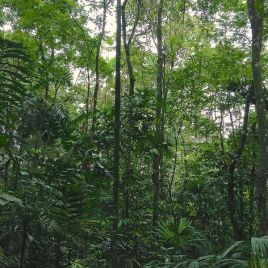
The resilience of tropical forests
Tropical rainforests that regrow after deforestation take up carbon more quickly than established forests and recover most of their biomass within decades, according to research on forests in Central and South America. Until now the recovery rate of these forests was unknown, hindering reliable estimates of their ability to absorb and store atmospheric carbon. […]
Brain cancer cells form connected network
Microtubes connecting brain tumor cells allow a specific type of brain cancer, known as gliomas, to spread quickly and become resistant to radiation therapy, a new study shows. This knowledge will allow researchers to target for future treatment efforts. These microtubes allow cancerous cells to reach out and form connections, allowing them to grow as […]
Let’s be clear about cannabis
Researchers must be more careful with the language they use when describing the relationship between cannabis use and schizophrenia to avoid causing misinformation and panic in the public, according to a Canadian researcher. In a Perspective the researcher writes the epidemiological evidence does not support the conclusion that cannabis use causes schizophrenia. Instead the author writes […]
Canadians receiving false positives for Lyme disease from U.S. labs
Canadians may receive false-positives for Lyme disease, from some commercial labs in the United States over half the time, according to an editorial in the CMAJ. Lyme disease, which is becoming more common in Canada, is spread by ticks and causes fatigue, swollen lymph nodes, and if not treated, the infection can spread to joints, […]
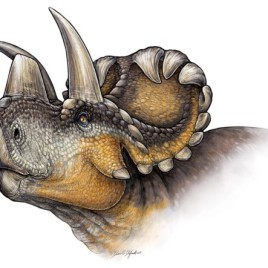
New species of horned dinosaur provides insight into Triceratops family evolution
A new species of horned dinosaur discovered in southern Alberta provides new information about the evolution of the Triceratops family of dinosaurs, the Ceratopsidae. The new species, Wendiceratops pinhornensis, is identified by 184 bones from at least four individuals. The Wendiceratop is an early species of horned dinosaur, living alongside the Albertaceratops, approximately 79 million […]
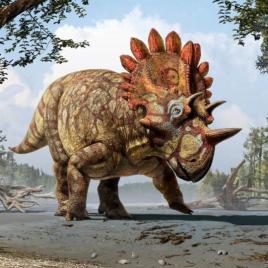
New species of horned dinosaur found in Alberta
Bones found 10 years ago along the Oldman River in Alberta belonged to a new species of horned dinosaur. This is the first time an horned dinosaurs species has been discovered in Alberta. According to a new study, this dinosaur is similar in many respects to Triceratops, except that its nose horn is taller and the […]
Smoking, respiratory health and Canada’s aboriginal people
Aboriginal peoples living in Alberta have a greater risk of developing a major respiratory disorder than non-Aboriginals, according to a new research. The prevalence of chronic obstructive pulmonary disease (COPD), mainly caused by smoking, between 2002 and 2010 in Alberta in people 35 years and older were higher for First Nations (11 per cent), Inuits (nine […]
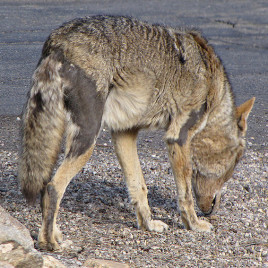
Why coyotes move to the city
Sick coyotes are more likely to seek easily accessible food sources such as garbage in developed areas according to a new study. Across North American cities reports of coyote-human problems have increased, and biologists are trying to understand why. The authors used GPS collars to follow 19 coyotes in the Edmonton area. Half of the […]
Why are the Dutch so tall?
The Dutch are currently the tallest people on earth, but 200 years ago they were among the shortest. A new study tries to explain how the Dutch population has grown 20 cm in average height in less than two centuries. Researchers observed in the Netherlands that taller men and average height women had more children […]
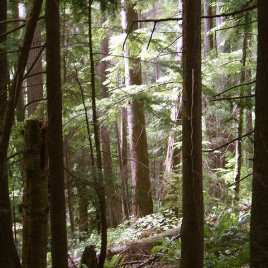
For a tree out west it’s all about the competition
A study of forests in Western Canada has revealed the forces shaping and changing the make up of a forest over time, are primarily competition among trees, with climate playing a secondary role. Researchers studied data collected between 1958 and 2009 in 1,680 forest plots from British Columbia to Manitoba. They found that competition […]
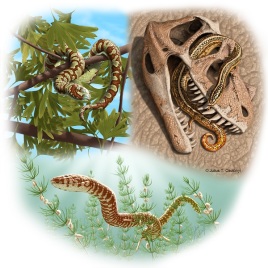
Oldest fossilized snakes ever found
Researchers have found the oldest known snake fossils ever discovered, pushing back the first record of snakes by 70 million years. The authors suggest that the fossils hint that the classic snake head evolved first and was then followed by the evolution of the elongated, limbless body. Studying fossilized skull bones found in England, Portugal […]
Nocturnal leg cramps more common in summer
Painful nocturnal leg cramps are about twice as common during summer than in winter, a new study has found. The authors found this by looking at the prescribing information in British Columbia between 2001 and 2007, for Quinine sulfate, commonly prescribed to treat the pain, and the volume of internet searches for “leg cramps” from […]
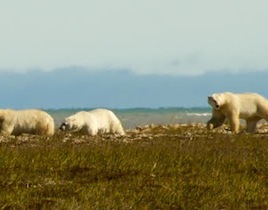
Melting ice could jeopardize 25% of polar bears by 2100
A new study suggests that if arctic warming trends continue, a quarter of the world’s polar bears will be unable to survive by 2100. The study uses a climate model to create detailed projections for the ice cover in the Canadian Arctic Archipelago, the series of islands and channels that dominate the far North of […]